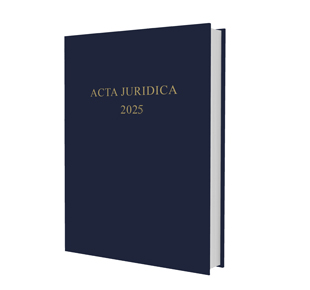Reforming the Labour Relations Act to realise collective rights for the informal economy: Lessons from the domestic and street vending sectors

Reforming the Labour Relations Act to realise collective rights for the informal economy: Lessons from the domestic and street vending sectors
Authors Pamhidzai Bamu & Marlese von Broembsen
ISSN: 1996-2088
Affiliations: LLB LLM PhD (Cape Town); Law Programme Coordinator for Africa, Women in Informal Employment: Globalizing and Organizing (WIEGO); BA (Stellenbosch) LLB (Cape Town) MA (Dev Studies) (Western Cape) LLM (Harvard) PhD (Cape Town); Associate Professor, Centre for the Transformative Regulation of Work (CENTROW), University of the Western Cape and Senior Labour Rights Researcher, Women in Informal Employment: Globalizing and Organizing (WIEGO)
Source: Acta Juridica, 2025, p. 243-282
https://doi.org/10.47348/ACTA/2025/a8
Abstract
The ILO’s Committee on Freedom of Association has developed jurisprudence that extends the right to freedom of association to ‘all workers without any distinction whatsoever’. Section 23 of the Constitution enshrines the collective labour rights of ‘every worker’. Yet, the Labour Relations Act (LRA) excludes workers in informal employment, who comprise over a third of South Africa’s workforce. Written as a thought piece, and placing domestic workers (who de facto are informally employed) and street vendors (who de iure work informally) at the centre, this article reimagines the LRA to account for the realities of workers in the informal economy: their workplaces (including private homes and public space); multiple employers (in the case of domestic workers) or no employer (in the case of street vendors); and in the case of workers who work in the public space, the central role of local government in determining access to the workplace and conditions of work. Drawing on three theoretical frameworks – Freedland and Kontouris’ ‘personal work relations’, Hepple’s typology of the functions of labour law, and power resources theory – the paper explores how the right to freedom of association, collective bargaining and the right to strike might be realised for the two occupational groups, and outlines the legislative reforms that would be needed.